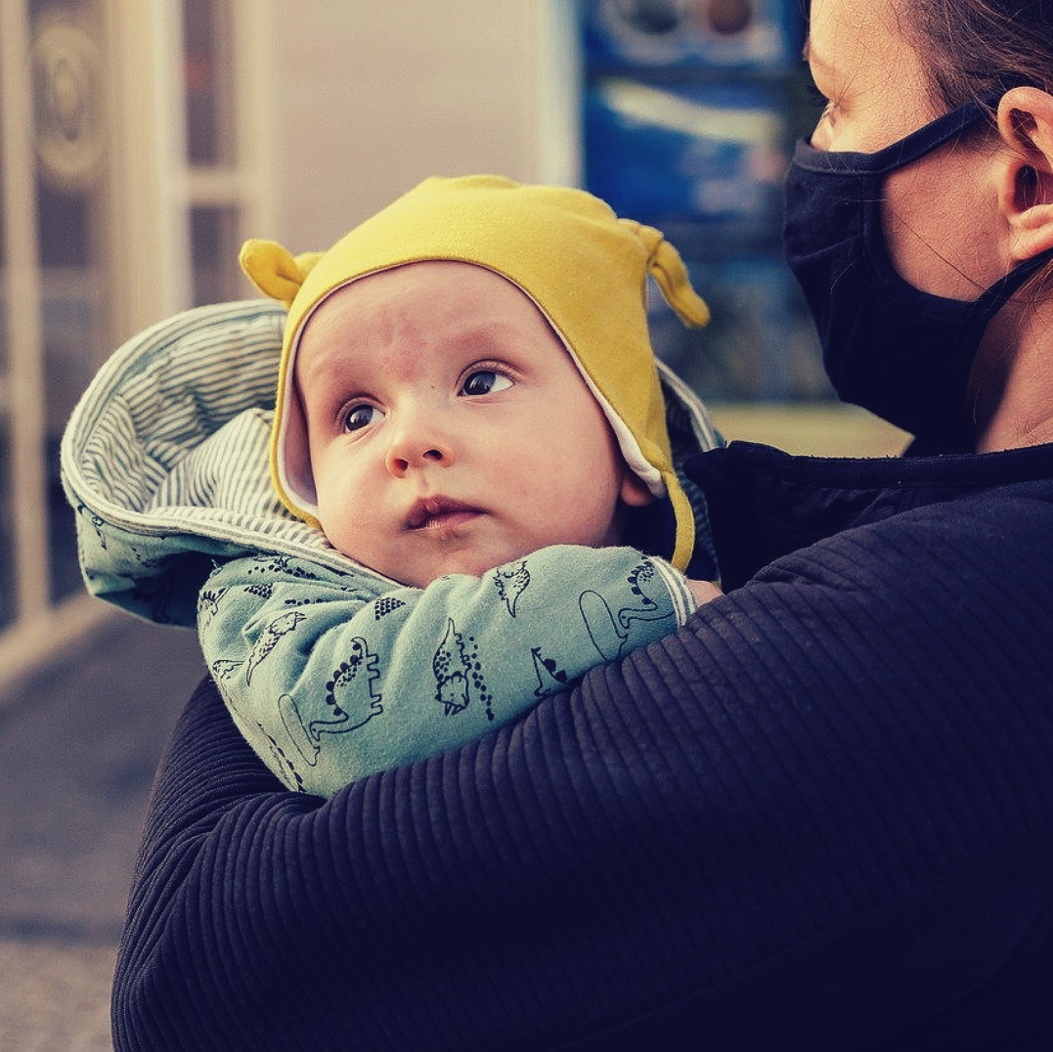
At Pregnant Pauses, we love to save money. If you are like us and you’re a deal-seeker, you’ve probably spent many-a-Sunday clipping coupons from the paper, and weekdays perusing the grocery ads to see where the best deals on your favorite products are. Most of us have access to multiple grocery stores so the research was sometimes exhausting. However, as technology has grown, there are even better ways to save money on your grocery bill and your gas bill.

If you haven’t already, it’s time to begin thinking about Spring Break travel plans! Spring Break is always a cherished time of year and this year is no different, even if we have to adjust our plans a little due to virus concerns.

By Josh Moore of diaperdads.org
The third trimester is chock full of prep work and to-do lists in order to get ready for your new arrival. Packing your hospital bag is one of the most important tasks ahead of you — and it’s also one of the most frazzling. Here’s a look at a few ways to make this process easier and more effective:
What Should I Pack?
When you’re packing your hospital bag, you’re prepping for two distinct events: labor and the hospital stay that comes with it. Your first step should be thinking about what kind of labor you want to have. Coming up with a birth plan empowers you to go in mentally prepared for the process, but try to stay flexible. Pregnancy and birth are unpredictable things, so be sure to read about what to expect in any scenario.

A positive pregnancy test is an exciting moment in any woman’s life! But, pregnancy can be an overwhelming experience for some moms to be. There seem to be so many “rules” to follow in regard to what you can eat, as well as supplements to take. But, there are many additional musts that you should consider. Read on to find out a few of them!
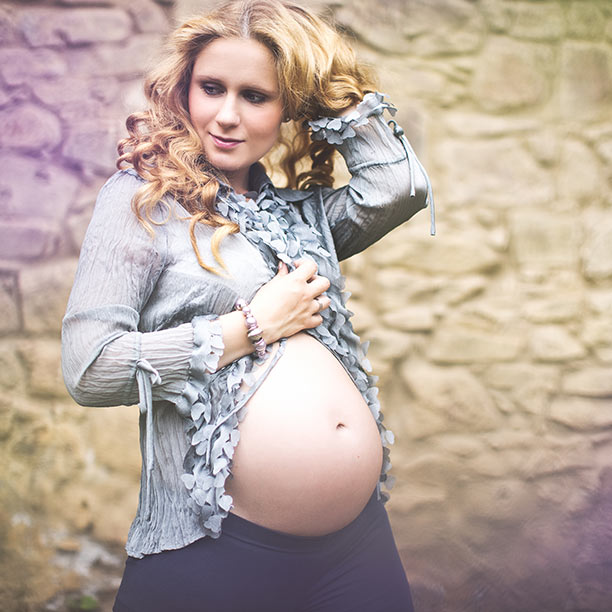
As someone who recently had a baby, I feel like no one ever really talks about the second trimester. Think about it. There’s lots of emphasis put on the first trimester. From morning sickness, to fatigue, and lots of strange cravings; the first trimester is a hot topic. And then, the third trimester is all about getting ready to prepare for your birth, nesting, and labor signs. So what is the second trimester all about? Read on to find out!
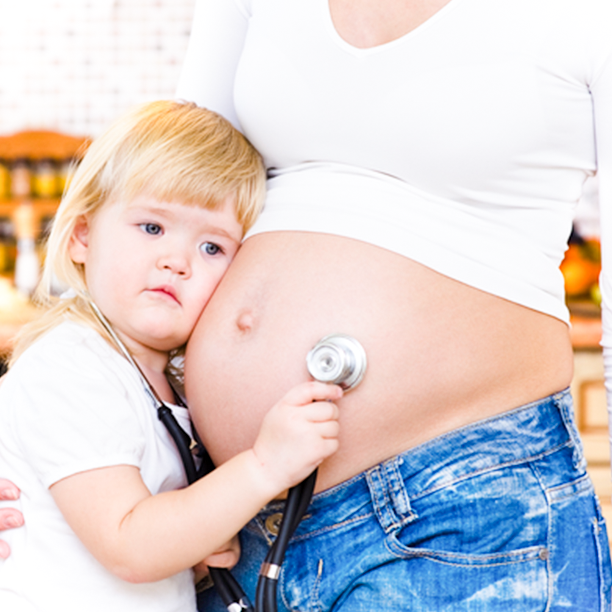
This pregnancy may start out being similar to your previous one – the excitement of finding out the joyous news, the early nausea, that familiar fullness in your womb. But as your pregnancy progresses, you may be surprised at just how much has changed this time around. Here are 6 ways your second pregnancy is different from your first.
During your first pregnancy, your body changed in a myriad of ways, some permanent like lingering stretch marks or widened hips, and some not so permanent like a heightened sense of smell or extra body hair (thankfully). Your body remembers that it has been through this before, so you may find that you notice certain pregnancy markers earlier. As first-timers, most women start showing in the fifth month or so; in subsequent pregnancies women generally start showing much earlier, being unable to fit into their pants pretty much as soon as the stick turns blue. You are also more in tune with your body this time, so you may feel the flutters and baby kicks earlier and can easily distinguish between movement and Braxton Hicks contractions. Morning sickness may not be the same – you may feel less nauseous or even sicker than before. Aches and pains may be worse since this baby rests lower in your abdomen, and your body releases a hormone to relax your joints earlier this time. Each pregnancy changes your body in different ways, so your next one could be nothing like the first two.
The first time around, everyone fawned over you, asked how you were feeling, held doors open for you and showered you with gifts and attention. Everyone was so excited for you and your upcoming bundle – you were treated like a princess! Cue the second pregnancy, and the reactions are much more muted. There isn’t as much interest in your condition and how you’re feeling. No one offers to carry anything heavy for you now that you’re hard-core into mommyhood, toting a toddler on your hip and a bursting diaper bag on your shoulder. Having a baby is old news. You might be slightly disappointed that Baby #2 isn’t as celebrated as the first. However, it to be a relief to have a quieter second pregnancy without strangers touching your belly all the time.
You were tired during your first pregnancy. Ha! This version of you, the experienced one, the one who has been through sleep deprivation hell with a newborn and chasing a toddler around all day, laughs at how naïve you once were. When you were tired or had aches and pains during your first pregnancy, you could sleep in on the weekends, go out to dinner, or stay in bed and watch movies all day if you needed a time out. Fast forward to Pregnancy #2 – you are way too busy raising your first child to take much time to rest. You are constantly on the go, shuttling your eldest to activities, making snacks, potty training or helping with homework – taking a break is rarely an option. Exhaustion reaches a new level.
During your first pregnancy you researched everything. The best stroller, safest car seat, the most educational toys for your little one. You created an iron-clad birth plan that you insisted had to be followed down to the last detail and were packed for the hospital weeks in advance. This time, you’re not up on the latest dos and don’ts and baby must-haves – if it was good enough last time, then why change it? Your birth plan, if you have one, is much shorter because you now know childbirth never goes according to plan. In parenthood, flexibility is a necessity; you’ve realized you can’t plan everything and have learned the ability to go with the flow and take life as it comes.
When you were expecting your first baby, you had a lot of fears about becoming a mom, about what childbirth was going to be like – there were a lot of unknown variables. Now, during your second pregnancy, you have been through this before, and although you know what to expect, you may have different fears of your own. You may be worried that you have forgotten what to do with a newborn or how you’re going to handle the sleep deprivation this time around. You will probably wonder how to handle two children instead of one and how your older one is going to adjust. Also, you may be afraid that you’re going to develop post-partum depression again. And if your first childbirth experience was traumatic, you might be afraid of a repeat this time. These are all common and legitimate fears – but fortunately you can do something to help alleviate them. Speak to your doctor, midwife, or doula about your concerns so they will be able to address them and find solutions. Arrange help for the first few weeks as you recover and adjust to your new bigger family – people will be happy to pitch in and help out.
First pregnancy: You know how far along you are to the day and practically to the minute. You know what fruit you can compare your baby’s size to every week and what organ is developing at each stage. Second pregnancy: At your appointment, the nurse asks how far along you are and you have to rack your brain to remember. Your growing baby is safe and sound in your belly, so your focus is on the well-being of your first child. Since you’re so busy taking care of someone else’s needs, you just don’t spend a lot of time thinking about it until – ouch – something hurts.
The second pregnancy is a lot different than it was the first go-round, in many ways for the better! This time you have experience under your belt and the knowledge that you are a tough mama who can get through anything. You can have faith and confidence that you can handle any changes that come your way, and enjoy this exciting new chapter as you focus on bringing another new little life into the world.

A Smart Start! : The Health Benefits of Breastfeeding (for Mommy and Baby)
The way you choose to nourish your newborn is a personal preference. But, if you’ve chosen to breastfeed your baby, you have made a great decision. There are numerous health benefits for not only babies, but moms as well. Read on to learn all about how you can get off to a smart start from the very moment you bring your baby into the world! Many experts agree, that breastfeeding is one of the healthiest things you can do for your baby if you are able to.
Most pediatricians recommend nursing your baby for about a full year. But, even if that’s not on your agenda, they feel that breastfeeding for even a short amount of time can be beneficial. How? The health benefits for your baby include:
Moms can reap benefits from breastfeeding too! Among the most vital and valuable are:
You have to make many choices as a parent. But, one choice you should consider is breastfeeding. It has a wide variety of health benefits for both you and your baby, and it is a true, bonding experience.
References
https://www.womenshealth.gov/breastfeeding/making-decision-breastfeed
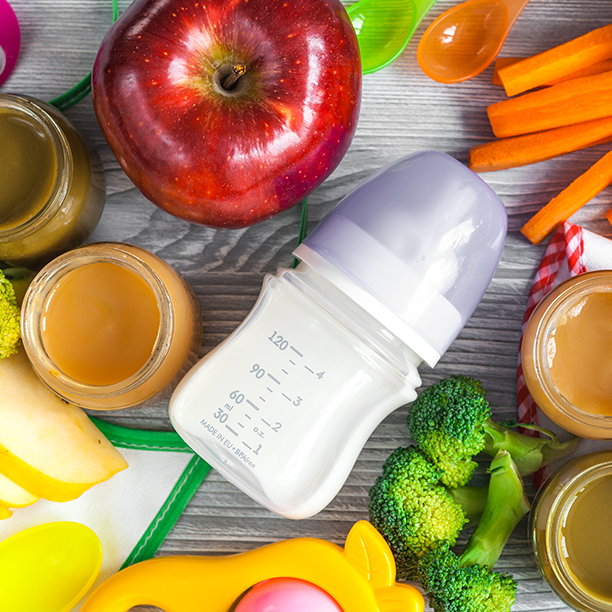
Nutrition is key when eating for two. When you first find out you are carrying an itty-bitty baby inside of you, you become very protective. One way to really make sure you nourish your fetus is by feeding it the healthiest foods that contain the proper vitamins and nutrients it needs in order to flourish! If you’ve just gotten a positive pregnancy test, read on to learn the best foods for both of you to eat during each trimester.
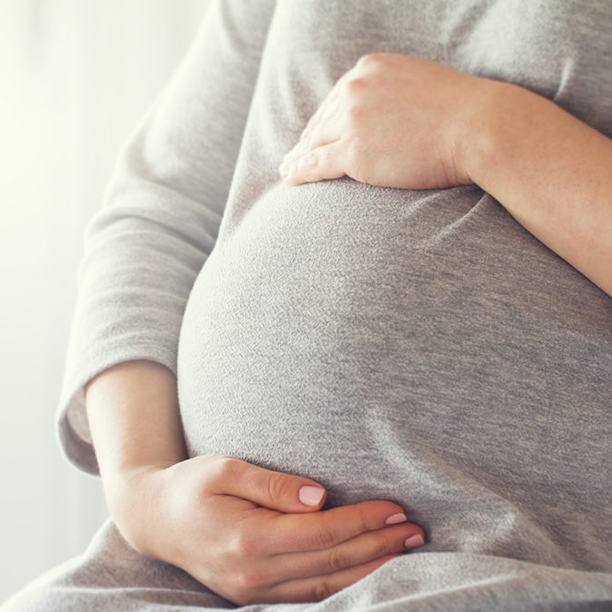
reposted with permission – https://www.hvac.com/blog/what-expecting-mothers-should-know-about-indoor-air-pollution/
Pregnancy is a time of growth and many expectant parents use this time to educate themselves. Books, articles, videos, in-person classes — pregnancy resources abound in our modern world. And one of the most common pregnancy safety questions expectant parents ask is: “What should I avoid when I’m expecting?”
Smoking, alcohol and certain medications usually top the list. Other culprits include soft cheeses, deli meats and fish with high mercury levels. But what about contaminants in the air?
According to the American Lung Association, common outdoor air pollutants include ozone, particulate matter, nitrogen dioxide, sulfur dioxide and carbon monoxide. Toxic air pollutants can come from burning fuels, vehicle exhaust, building emissions and other sources. However, most people spend 90% of their time indoors.
With recent research showing that air pollution can significantly impact mothers and babies, pregnancy is a good time to consider your home’s heating, ventilating and air-conditioning ( HVAC ) system. Humidifiers and air purifiers can help with indoor air quality, but if the source of your air, your HVAC system, isn’t clean, those additional measures won’t matter.
An informed decision on the heating and cooling components you use can affect your air quality. Depending on the temperature where you live, your home might require a furnace-air conditioner combination to heat and cool your home. A heat pump can be a great option for more moderate climates. Because heat pumps don’t use combustion, there is no risk of carbon monoxide filling the air of your home.
No matter how you choose to heat and cool your home, one thing is certain: clean air is best for everyone, and especially for pregnant mothers and newborns.
Studies have found links to adverse health outcomes because of poor air quality. Some affect women before or during pregnancy, while others appear in babies or even older children.
After a typical, healthy pregnancy, a full-term baby usually weighs between six and nine pounds. Low birth weight is defined as less than 2,500 grams, or five pounds, eight ounces. The Centers for Disease Control reports that about 8% of babies in the United States are born with low birth weight.
Multiple studies have observed the effects of air pollution on birth weight. One study conducted in Los Angeles investigated obstetric records of births by non-smoking women. Mothers living in more polluted areas gave birth to babies who weighed, on average, 314 grams, or 0.69 pounds, less than infants who were born to women residing in less polluted areas.
Another study from China observed women who were pregnant during the 2008 Beijing Olympics, a two-month period when the city was required to lower emissions and improve air quality. The study revealed mothers who were eight months pregnant during the Olympics gave birth to babies who were 0.8 ounces heavier, in contrast to women who delivered during the same calendar months in previous years.
Babies born before the 37th week of gestation are considered preterm and are at risk for neurological disorders and permanent physical disabilities, as well as for breathing difficulties, cardiac problems, an inability to maintain body temperature, an immature digestive system and retinopathy. While premature birth can happen to anyone for many reasons, air pollution is one possible reason you should try to avoid.
Several studies have found links between air pollution and preterm birth. One by the Stockholm Environment Institute (SEI) at the University of York revealed that “in 2010, about 2.7 million preterm births globally — or 18% of all preterm births — were associated with outdoor exposure to fine particulate matter.” A Swedish study published in 2013 showed a correlation between first-trimester ozone exposure and the incidence of preterm birth, while a National Institutes of Health study suggested air pollution exposure during a second pregnancy may increase the chances of preterm birth.
According to a 2014 study from the Harvard School of Public Health, expectant mothers who are exposed to high levels of fine particulate matter during the third trimester could have twice the risk of having a child with autism spectrum disorder (ASD) than pregnant women living in areas with low particulate matter. The researchers did compile data during all three trimesters of pregnancy, but they noted that the “only statistically significant association” between fine particulate matter and autism spectrum disorder occurred during the third trimester.
The study followed women from 14 states in all regions of the continental United States. It also considered factors such as population density, elevation and distance to freeways and other particulate sources, like power-generating utilities and waste combustors.
For pregnant women who have asthma, as long as it is well controlled, the condition poses no significant risk to the mother or the unborn baby. Uncontrolled asthma during pregnancy, however, can lead to high blood pressure, pre-eclampsia or premature delivery. No matter how well controlled a person’s asthma, air pollution can worsen asthma symptoms.
In addition, recent research has shown air pollution exposure during pregnancy may increase the likelihood of the baby developing asthma later in life. A 2016 study looked at the role of air pollution from traffic sources in urban areas. Researchers discovered that “children whose mothers lived close to highways during pregnancy had a 25% increased relative risk of developing asthma before the age of five.”
Multiple studies, including a 2018 systematic review of literature, have suggested that “air pollution could represent a matter of concern for female infertility.” In fact, one study found that fertility rates in northern California increased when eight plants burning coal and oil closed down, reducing the levels of fine particulate matter and nitrogen oxide.
Scientists have also devoted much effort to studying the effects of air quality on miscarriage, often called spontaneous pregnancy loss in the medical community. They have concluded that “short-term exposure to elevated levels of air pollutants was associated with higher risk for spontaneous pregnancy loss.”
When it comes to air pollution and pregnancy safety, researchers have also found links to increases in gestational diabetes in expectant mothers, high blood pressure in childrenand delayed psychomotor development. However, it is important to note that most studies so far have established only correlations between polluted air and disease, rather than a direct cause and effect.
While the research is compelling, remember, in some cases, scientists have not determined which time period — week, month or trimester — is most susceptible to the dangers of air pollution. In addition, most studies have focused on outdoor air pollutants, so more research is necessary to understand the effects of poor indoor air quality on pregnancy.
According to the EPA, outdoor air pollutants can affect human health, harm the environment and cause property damage. Interestingly, the EPA has reported that “the air within homes and other buildings can be more seriously polluted than the outdoor air in even the largest and most industrialized cities.”
How is this possible? One reason is inadequate ventilation. Scientists who have studied sick building syndrome found that designers in the 1970s made buildings more airtight in an effort to improve energy efficiency. The reduced ventilation negatively impacted the health of building occupants. More recent standards from the American Society of Heating, Refrigeration and Air-Conditioning Engineers require an increased outdoor airflow rate.
What’s the application to homes, where we spend the majority of our time? Most residential structures are designed to minimize the amount of outdoor air that can “leak” into and out of the home. When not enough outdoor air enters a residence, pollutants can build up, according to the EPA’s resource, “The Inside Story: A Guide to Indoor Air Quality.”
Outdoor air enters and exits a house by three methods: infiltration, natural ventilation and mechanical ventilation. Infiltration means that outdoor air flows into the house through openings like joints, around windows and doors, and cracks in walls, floors and ceilings. Natural ventilation is when air moves through opened windows and doors.
An example of mechanical ventilation is a fan that intermittently vents to the outdoors, removing air from one room, such as a bathroom or kitchen. A larger air handling system uses fans and ductwork to regularly extract indoor air and deliver filtered outdoor air throughout the house.
When infiltration, natural ventilation or mechanical ventilation are not adequate, indoor pollutant levels can rise. Most immediate effects of poor indoor quality are similar to the common cold or other respiratory viruses. Therefore, it can be difficult to know if the symptoms are related to air quality or minor sickness. If you experience troublesome respiratory symptoms, try to note the time and place they occur. If they go away or decrease when you’re away from home and return when there, this could mean poor indoor air quality is to blame.
When it comes to pregnancy safety, it’s important to investigate the air quality in your home even if you’re not experiencing nagging respiratory symptoms. Some health effects show up only after years of repeated exposure to poor air quality, and these can be as serious as cardiovascular disease or cancer. Here are some actionable steps to check your home’s air quality:
Check for signs of ventilation problems. According to the EPA, these include “moisture condensation on windows or walls, smelly or stuffy air, dirty central heating and air-cooling equipment and areas where books, shoes or other items become moldy.” Other possibilities are a gas stove, certain building materials and synthetic or treated upholstery.
You might also consider testing your home for radon, a colorless, odorless, radioactive gas. Inexpensive testing devices are available, or you can hire a professional to conduct testing. Local and state health departments often have consultants who can help with identifying and solving problems related to indoor air quality.
You can reduce the concentration of indoor air pollutants by increasing how much outdoor air is entering your home. Weather permitting, the simplest ways to improve ventilation are to open windows and doors, run window or attic fans and operate a window air conditioner with the vent control open. Another option is using bathroom or kitchen fans that exhaust outdoors, eliminating toxins from the room and boosting the outdoor air ventilation rate.
If you are doing a temporary activity that can release pollutants into your home, it’s essential to have good ventilation. Examples are painting, paint stripping, heating with kerosene, welding or sanding. When possible, move those activities outdoors.
If you have a traditional HVAC system or furnace, the EPA recommends changing the filter every 60-90 days. Make sure to buy the correct size; it should fit snugly so air does not leak around the filter.
You might also consider adding a portable air cleaner to your home. This is a separate unit that filters gases or particles, even the fine matter that is considered most harmful. There are different types of air cleaners, and effectiveness varies widely. Most air cleaners filter either particulate matter or gases, so if you’re looking to reduce both, you will probably have to purchase two units.
Another possibility is to switch to a heat pump, a decision that depends on climate, budget and personal preference. The average cost of a heat pump ranges from $700 for a ductless mini-split system to $13,000 for a geothermal heat pump system. Regarding air quality, heat pumps do not use combustion and, therefore, do not produce harmful emissions.
Pregnancy is usually a joyous time for expectant parents as they anticipate a new baby. But it can also feel overwhelming when digesting new information, budgeting for baby expenses and preparing your home for your baby’s arrival.
By maintaining your HVAC system, you can find reassurance by avoiding costly breakdowns and repairs. The last thing you want during an already uncomfortable pregnancy is a home that’s too hot or too cold. Having a well-kept HVAC system ensures the air you breathe is clean, giving your baby a greater chance of protection from the risks of poor air quality.
Many expectant mothers might spend time carefully inspecting ingredient lists and conducting online research to guarantee these things are safe for your growing baby.
Breathing clean air, thanks to a maintained HVAC system, is just as essential as the healthy food and hydrating beverages you put into your body during pregnancy. The source of your home’s air is your HVAC system, and it’s important to understand its condition, both on the interior and the exterior, during pregnancy and when welcoming your new baby into the home.
April Leiffer Henry is a writer, wife, mom of three, Diet Dr. Pepper addict and dark chocolate lover. She has channeled her borderline obsessive interest in pregnancy, birth, lactation and well-woman care into a freelance writing business that helps women’s health professionals and birth workers publish awesome website content. Her work has been featured on Her View From Home, MyWorth and Creative Revolt.
Disclaimer: This Content is not intended to be a substitute for professional medical advice, diagnosis, or treatment. Always seek the advice of your physician or other qualified health provider with any questions you may have regarding a medical condition.

Pregnancy Superstitions
Who doesn’t love an old wives’ tale? Alright, maybe they’re not for everyone, but expectant mommies are often curious about clues that might give them some insight on what gender their baby will be, whether they’ll be bald for months or born with golden locks, or when they’ll deliver. A lot of people believe these alleged myths are nothing more than that, but a few of them actually have solid roots in science.
Gender Prediction
This is probably the largest genre of old wives’ tales regarding pregnancy. There are many theories out there. Some are fun, some are weird, and some make no sense at all.
Pregnant Pauses | Copyright 2012 - 2018 Design & Developed by Buy Wordpress Templates